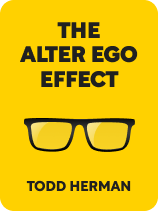

This article is an excerpt from the Shortform book guide to "The Alter Ego Effect" by Todd Herman. Shortform has the world's best summaries and analyses of books you should be reading.
Like this article? Sign up for a free trial here .
What does it mean to have a purpose in life? Why is it important to determine a strong purpose?
In The Alter Ego Effect, Todd Herman advises finding a purpose to push yourself to achieve your goals. Furthermore, he says to have an emotional connection to your purpose to stay committed.
Read below to learn why finding your purpose in life can improve your lifestyle.
Determine Your Motivating Purpose
If you have goals you want to achieve, figure out what your purpose in life is. You need a strong purpose to stay committed to your goals over the long term. Your purpose can be anything you care about deeply, whether self-focused (the desire to be wealthy and famous, for instance) or other-focused (for example, the desire to protect the oceans).
(Shortform note: While Robin Sharma, like Herman, recommends you set a purpose, his definition of it differs from Herman’s. For Sharma, a purpose is the implementation of a special ability to improve the world, while for Herman, your purpose can be self-focused. Still, you could likely find an unselfish benefit in even the most seemingly self-centered purpose: For instance, if your purpose is to make lots of money, you’d still be benefiting others by spending it.)
Ensure you have an emotional connection to your purpose, continues Herman. Emotions, not rationality, sustain a long-term commitment to your purpose. For example, if you read an article about the challenges of being a foster child, you might spend a few months volunteering for a foster organization before losing your drive. However, if you were a foster child yourself, your intense emotional desire to help other foster children will let you stick with your volunteer efforts for the rest of your life.
(Shortform note: Herman’s right to stress the importance of having an emotional connection to your purpose. Human decision-making is almost always driven by emotion, not logic. So, for you to consistently make decisions that keep you aligned with your purpose, you must want to make those decisions, not logically know that you should.)
How to Find Your Life Purpose
To discover your purpose in life, ask yourself why you take certain actions and then keep asking “why?” in response to your answers until an answer resonates with you emotionally, counsels Herman. This emotionally resonant answer hints at your purpose. It will usually be related to values like family, community, religion, country, and so on.
For instance, if you often go for walks in a forest, ask yourself “why?” Your answer might be: to connect with nature. “Why?” Because nature is soothing. “Why?” Because it makes me feel in touch with a higher power. You’ve just hit on what could be a purpose: to live more spiritually.
(Shortform note: If Herman’s recommended method for finding your purpose doesn’t work for you, consider some alternate paths to finding it: Look to others in your community to reinforce existing personal qualities that might suggest a purpose (your amazing listening skills, for instance) and to inspire you through their own purposes (you might have friends who love fitness, and this might give you the purpose of developing your physical abilities).)

———End of Preview———
Like what you just read? Read the rest of the world's best book summary and analysis of Todd Herman's "The Alter Ego Effect" at Shortform .
Here's what you'll find in our full The Alter Ego Effect summary :
- What an alter ego is and why you should use one
- The steps of building, shaping, and unleashing your alter ego
- Why your alter ego is still authentically you






